Best Places to Visit in Florida

Searching for the best places to visit in Florida and things to do there? Well, you are in the right place! I've been visiting the "The Sunshine State" and its whopping 825 miles of sandy beaches for forty years. But especially since we moved to the South and we took our four week road trip.
Now, first things first, most people expect sandy beaches but what they don't realize is that Florida is also home to great natural springs and historical sites. My article is a long one because it includes (at least) 100 things to do in addition to beaches. Here are my absolute favorites to help jumpstart your holiday plans. I hope you'll love them too.
- Best Time to Visit Florida - Worst Time to Visit Florida
- How to Get to (and Around) Florida
- Where to Go in the Florida Keys
- - Key West
- Best Places in Florida on the Atlantic Coast
- - Miami - Delray Beach
- Best Florida Places to Visit on the Gulf Coast
- - Destin - Venice - Bonita Springs - Tampa - Marco Island
- Other Amazing Day Trips in Florida
- - Orlando - Mount Dora - Gainesville - DeLand - Wakulla Springs - Lake City
Best Time to Visit Florida
Over my several decades of returning to Florida, I found that it really depends on what part of Florida you’re exploring...it’s a big state with all kinds of weather. Key West is tropical, South Florida is perfect for warm-weather day trips, but higher up in northern Florida you get real winter months in January and February so swimming in the ocean (or natural springs) is out of the question.
That's why, for comfortable temperatures and least crowds, go between March and May or September and November. I also think December through February is a great window for a weekend getaway to Key West which is much further South and tropical (prices are high but generally it's still much cheaper than Hawaii and other tropical islands!).
Worst Time to Visit Florida
The most difficult time to visit Florida is June through September because of heat, humidity, and afternoon thunderstorms. You also need to worry about hurricane season, which officially runs from June through November (though August to October is highest risk!).
How to Get to (and Around) Florida
- By Air: Florida is very easy to reach by plane, landing at Orlando International (MCO), Miami International (MIA), Fort Lauderdale-Hollywood (FLL), and Tampa International (TPA). Rent a car after you land.
- By Train: There's Amtrak service connecting several Florida cities, including Orlando, Tampa, Miami, and Jacksonville. Brightline is another great option, if you want to go between Miami, Fort Lauderdale, West Palm Beach, and Orlando.
Where to Go in the Florida Keys
For me, the Florida Keys are easily the most unique and exciting place in all of the U.S.
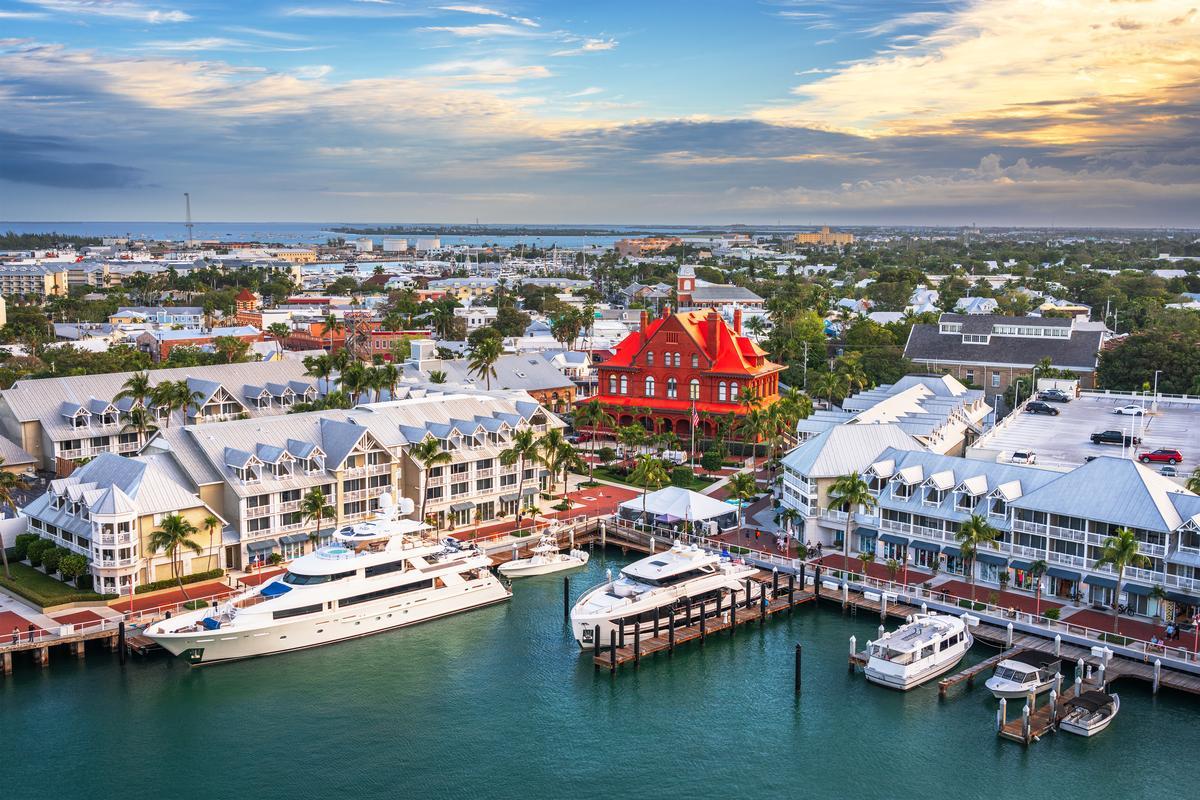
Key West
Now, first things first, this Florida Keys city is one of my absolute favorite Florida getaways. Yes, it's actually a tropical island. Every time we visit, I’m amazed at how much fun this little island packs in! Don’t worry though, I will show you how to have the best time.
Where you go will depend a lot on how much time you have to spend on vacation. You can fly directly to Key West International Airport and base yourself in Key West of a relaxing 3-day weekend.
Once you reach Key West, I love that I can go snorkeling in the morning, have a casual lunch at a cafe, then relax on the beach. Then head back to the hotel to get a spa treatment. And finally, strolling through Old Town’s streets is always fun, before ending the day with fresh seafood!
Last month, we caught the Key West Express ferry from Fort Myers (about 3.5 hours, $95–$125 one way cost of this journey). The ferry takes you right into Old Town’s lively streets.
After dropping off the bags, we were hungry. Luckily, one of the coolest things about Key West is the food scene. I have to share two of my favorite spots that completely won me over. The Stoned Crab is an awesome waterfront restaurant where I indulged in the freshest seafood. Go for crab claws, oysters, and fish caught that morning.
We spent the rest of the day just relaxing on the beach, sunset included! Next day, breakfast was at La Crêperie French Café, which quickly became my go-to for breakfast and brunch. It’s a hidden gem, and the crêpes are honestly some of the best I’ve ever had...anywhere.
After breakfast, I spent an hour at Books & Books at The Studios of Key West, another highlight for me! Then we headed to Duval Street (about 10-15 mins on foot from the bookshop) and just enjoyed strolling around for a while. We stopped at the Hemingway Home (of course!) just around the corner for a pinch of history and I loved it (Tours start every 15 minutes, $19 for Adults, no reservations needed!).
I wanted to mention that I timed my visit last month during Fantasy Fest, which was a great idea. It lasts 10-days with costumes and lots of fun.
We checked into 2-star Ibis Bay Beach Resort, a cool place with 600 feet of white beach and hammocks for everyone!
What I loved best:
Mallory Square at sunset is always my personal highlight because there's great people watching and each sunset is unique. But you should know that it can get more crowded than you'd expect (the crowds can be tough for little kids!).
Best Places in Florida on the Atlantic Coast
Next are my favorite places to visit along the Atlantic Coast, organized South to North.
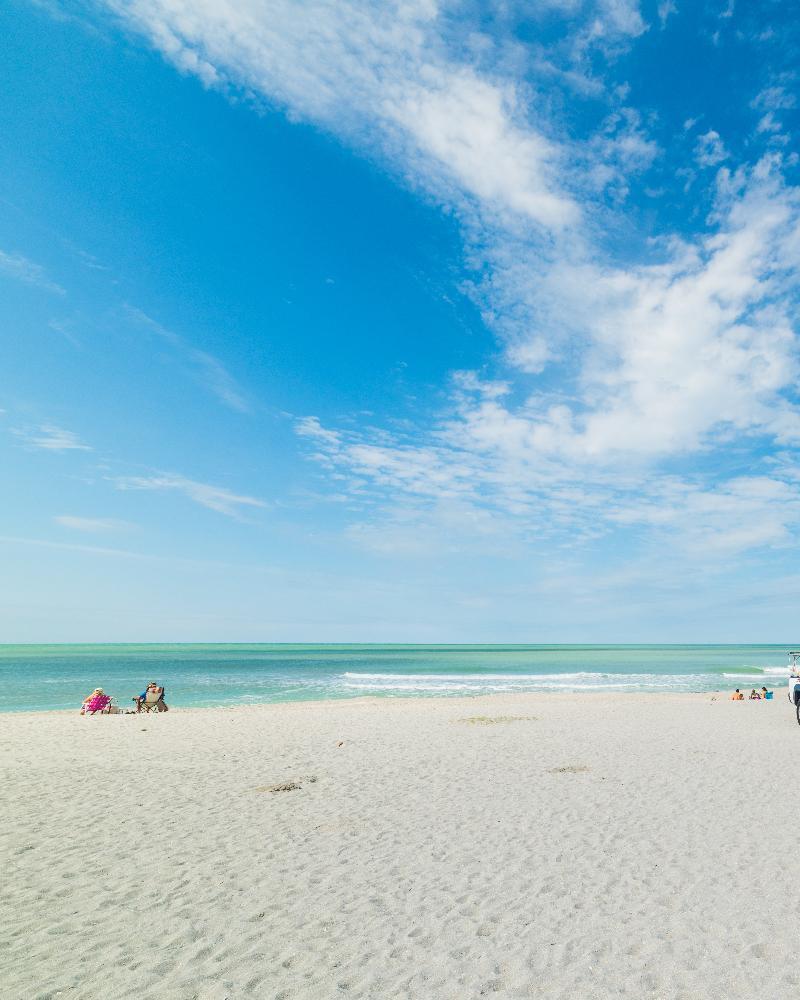
Miami
We absolutely love Miami, and have been many times. Now, first things first, this is one of the most dynamic coastal destinations I’ve ever visited (in the whole world!). It's one of my absolute favorite places in Florida to visit. There are heaps of things to do here so expect to see a lot! I recommend staying a few days at least.
To get you up to speed, basically, Miami is made up of several distinct neighborhoods. I think that’s a big part of what makes Miami so special to vacation. But I have to warn you if this is your first vacation to Miami, the city is spread out with heaps of things to do. We've been coming back for years and I still have to take a beat to orient myself because Miami has been evolving so fast. I highly recommend joining a tour with a local guide to get yourselves up to speed fast. Luckily there are lots of great tours to choose from in Miami.
We spent our first morning exploring the Pérez Art Museum Miami (PAMM). First things first, don't miss the hanging gardens overlooking Biscayne Bay.
Right after, my personal highlight was amazing Enchiladas at Mayami Wynwood where are refueled with brunch.
After yummy food, we checked out Wynwood for murals, cafés, and indie shops. In the afternoon, we checked out an innovative exhibition at Laundromat Art Space, a cool artist-led organization. I have to warn you, though, that parking can be a challenge! No, there's no getting around it. You'll just have to be patient or use public transportation.
We checked in for a four day stay at The Betsy South Beach after flying in from Austin.
The raw bar for dinner at LT Steak & Seafood at The Betsy where we were staying was my personal highlight.

Delray Beach
This is one of my favorite places to visit in Florida when I want a walkable downtown, and artsy corners. Now, first things first, Delray Beach has a great beach so you'll want to relax first. If you are early, watch a scenic sunrise right from the beach.
A pleasant 30 minute drive north from Fort Lauderdale brought us straight into the heart of the city on our easy family day trip in Florida. You should know there’s also a convenient Tri-Rail and Brightline station nearby if you don't feel like driving.
First thing after we arrived, Chris, our son and I loved relaxing on the beach for a while. When we got hungry after later, we also loved getting to know the city's culinary side.
I was happy to discover that dining in Delray Beach is yummy. Close to the beach, my favorite is the Grilled Chicken Club ($20) at Deck 84 right on the water.
Next, we headed to Wakodahatchee Wetlands for boardwalk wildlife viewing, my favorite highlight.
After, we loved exploring the tranquil Morikami Museum and Japanese Gardens just a short drive away.
For dinner, don’t miss having a romantic night at Burt & Max’s in West Delray serving elevated comfort food.
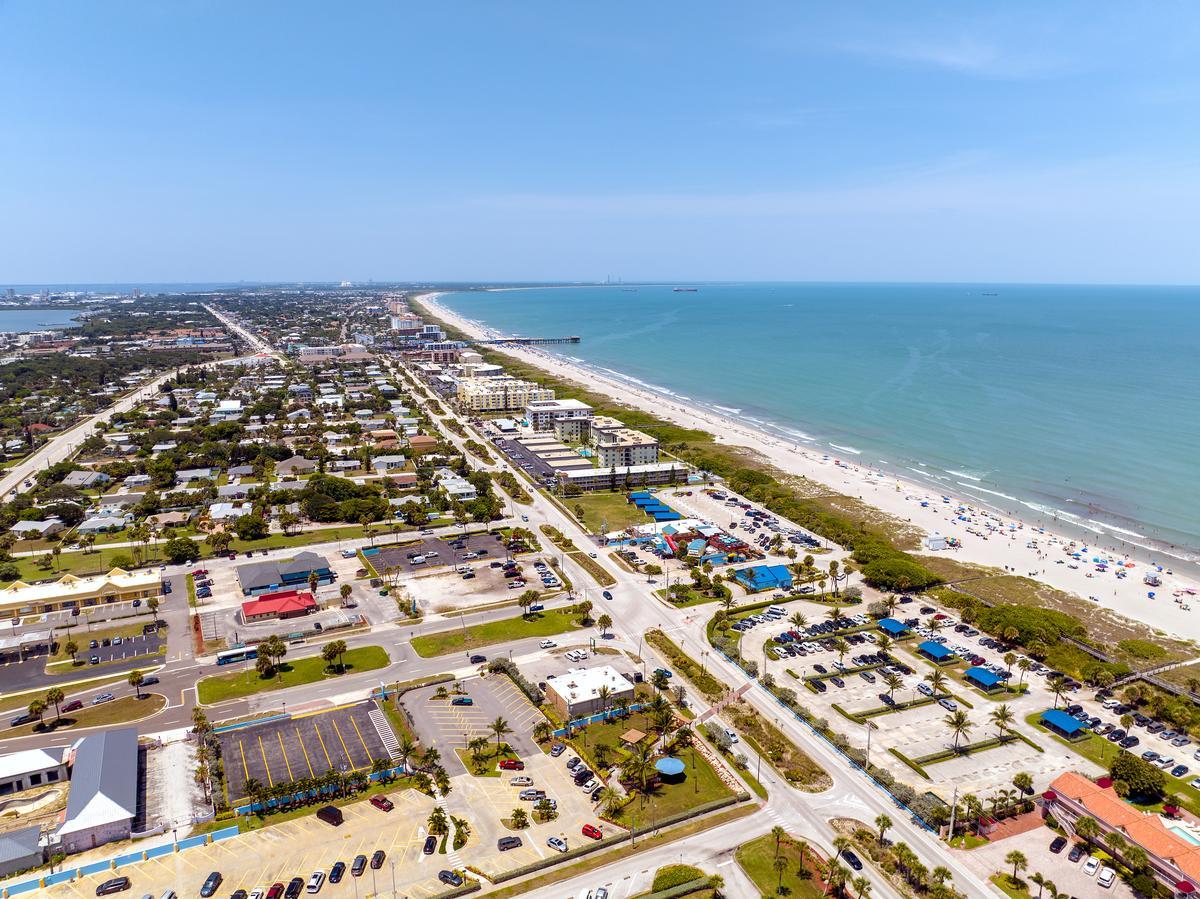
Cocoa Beach
This town is one of my favorite Florida day trips when I'm in the mood for a nostalgic vibe. It also has sunny beaches (of course!), and that classic surf-town charm.
A smooth 2 hour drive from our last stop in Delray Beach brought us right into Cocoa Beach.
We headed to the iconic Cocoa Beach Pier first. At the pier you'll find the most restaurants, and surf shops. Lori Wilson Park was our second stop for its nature trails and family-friendly amenities.
After lunch, The Florida Surf Museum (adult $5 donation) was a highlight for me personally, because it's so authentic and rooted in local culture (plus it reminded me of the years we lived in Hawaii).
If you've never surfed, this is the perfect time for a beginner surf lesson. Your head to the famous Ron Jon Surf Shop and they'll take care of you. You can also rent paddleboards, or fish off the pier.
Next day, families shouldn’t miss the Kennedy Space Center Visitor Complex just up the road. Nature lovers can spot manatees and dolphins on a kayaking tour through the Thousand Islands mangrove area.
What I loved best:
For me, Cocoa Beach has been one of the best places to visit in Florida since my first trip because it offers a little bit of everything. Catching a rocket launch from the beach with my husband and son was an unforgettable sight and my favorite highlight!
A downside? Parking near the pier can be tricky on weekends, and the crowds sometimes felt overwhelming. You should plan to arrive early in the day if you want a more relaxed start.

Daytona Beach
Ready for a history-rich seaside escape? Check out Daytona Beach, one of my favorite vacation ideas in Florida. This Florida destination has deep roots in motorsports. It's also old-school Florida which I love.
Last time I timed my visit for the start of sea turtle nesting season and the colorful Halifax Art Festival.
Driving up from Cocoa Beach for about one hour and 25 minutes, first, we visited the excellent Museum of Arts & Sciences (MOAS). The must-see planetarium is my son's favorite. The lush Tuscawilla Preserve was also a highlight.
What I loved best:
Delicious Rasta Chicken Quesadillas with a view at Ocean Deck Restaurant & Beach Bar was my personal highlight.
Best Florida Places to Visit on the Gulf Coast
If you prefer the beaches on Florida's Gulf Coast, I don't blame you. I love them too. I live in Texas and all our beaches are on the Gulf coast. Here are all my favorite Florida Gulf Coast stops, approximately ordered from north to south.
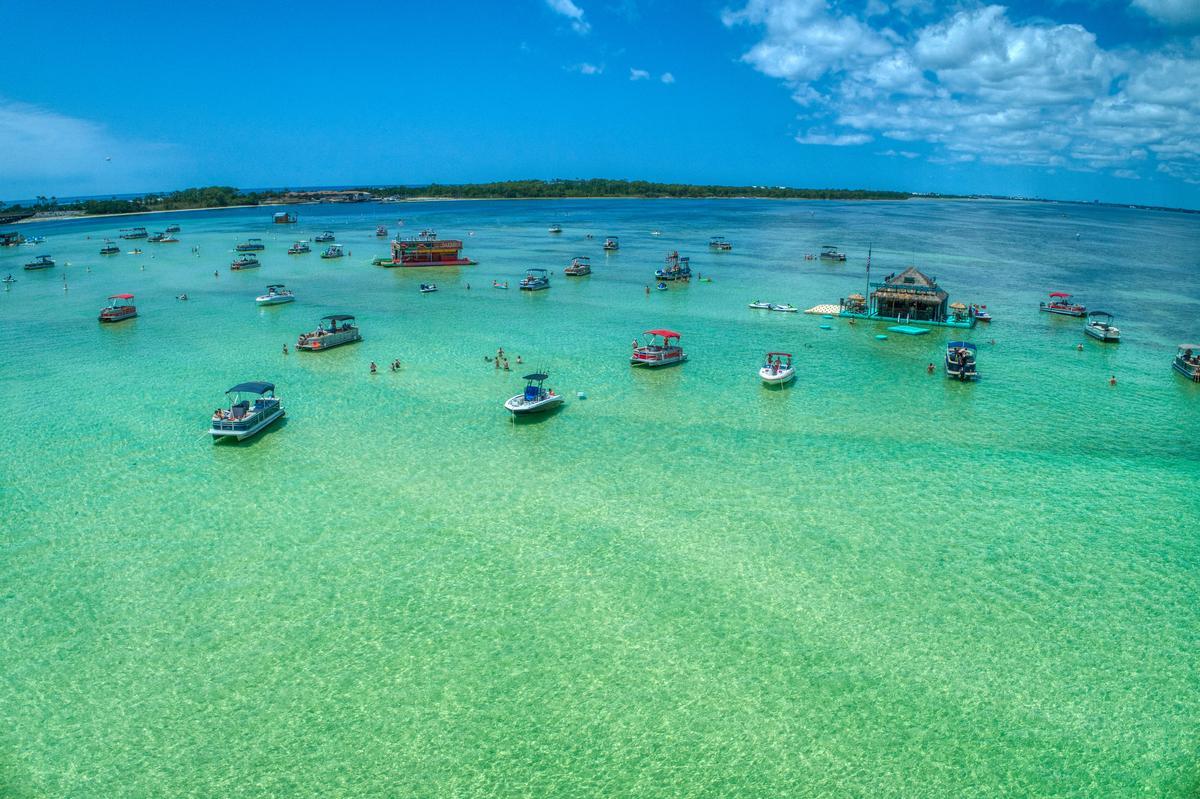
Destin
Emerald-colored ocean, white beaches, heaps of dunes...I thought Destin was one of Florida’s best places to go on vacation when I moved to the South.
My first stop was Henderson Beach State Park on the Gulf. I was instantly wowed by the beauty. If you decide to book one of the 60 campsites connected to the beach via boardwalk, be sure to do so well ahead of time!
We enjoyed lounging on the soft sand at Henderson Beach, then wandered along the boardwalk at Destin Harbor. Next day we were up early, and went snorkeling and then paddling a kayak.
If you are staying for a few days, I also recommend Beach Sand Sculptures, a sand-sculpting class. You’ll learn pro tips like the correct sand-to-water ratio and also build a sand sculpture a few feet high!
A drive along the Emerald Coast Parkway brought me to this lively beach town where we stayed at Henderson Beach Resort for two relaxing days.
What I loved best:
Dinner overlooking the water at Boshamps was my personal highlight.
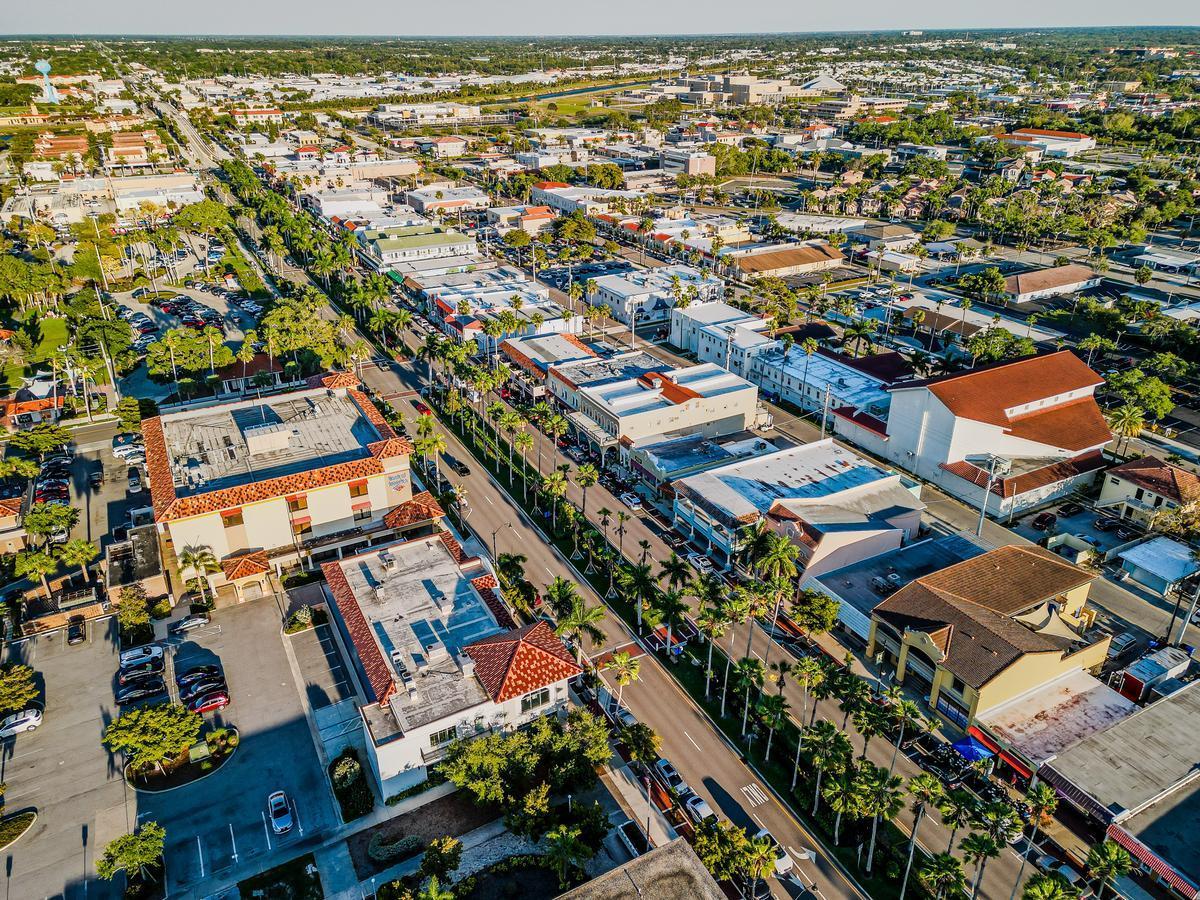
Venice
This is one of my favorite places to visit on the Gulf Coast because, just like Destin, Venice has turquoise Gulf waters and soft sand (although they are over 7 hours apart by car if you are mapping out a road trip). We also love the peaceful nature preserves in Venice, Florida.
We headed to the beach first, walked on the sand and admired shells along Venice Beach. It went on and on, so I looked up how long it was. Whopping 14 miles from Casey Key down to Manasota Key! You can start at the Venice Municipal Beach which is quite a lively spot. I especially recommend the wide pier at sunset!
I recommend Spiced Seafood Nachos ($24) at Sharky’s on the Pier because you get to have a yummy meal of the view. Either lunch or dinner work.
Next day started with Breakfast at Croissant & Co.. After, we discovered the mangrove-lined Intracoastal Waterway on a kayak tour first thing in the morning. In the afternoon, enjoy the the shaded trails of Oscar Scherer State Park.
A downside? This place felt quieter than other Florida beaches which I loved, but if you’re seeking big entertainment, you may find evenings here a little slow.
Need a place to stay? Try the 3-star Inn at the Beach.
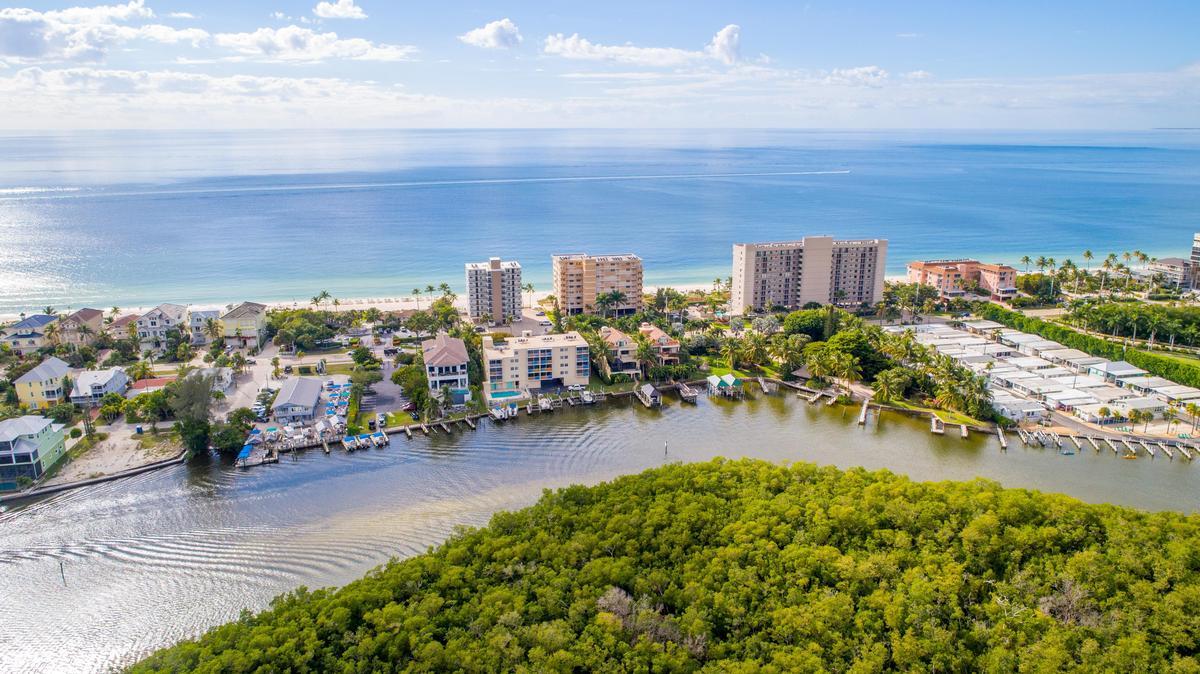
Bonita Springs
This is one of the most naturally stunning places I’ve explored in southwest Florida, one of my absolute favorite Florida day trips! The drive from our last stop in Venice to Bonita Springs took about 1 hours and 15 minutes. If you’re in the mood for a relaxed getaway that still offers heaps to do, Bonita Springs is truly an amazing pick! And, yes, the water is turquoise color here too!
Now, first things first, we enjoyed floating in the calm water at Bonita Beach, then had lunch. Next, we walked along the boardwalk trails at Barefoot Beach Preserve where we caught a great sunset.
Dining in Bonita Springs meant heaps of fresh seafood. For a toes-in-the-sand meal, Doc’s Beach House is the best. For a romantic dinner you want to get dressed for, head to C Level Bistro & Wine Bar.
In the morning, Southern dishes at This incredible city is one of my favorite places to visit in Florida. Tampa offers heals of things to see and do, but also plenty of coastal relaxation. I love that it boasts great public transportation.
First things first, I enjoyed walking along the Tampa Riverwalk because as far as riverwalks go, it's one of the top in the world.
Then I recommend exploring the colorful streets of Ybor City. It's easy to find a yummy lunch stop.
After, we enjoyed relaxing in the sunshine at Curtis Hixon Park.
Next day visiting Big Cat Rescue was unlike anything else on my Tampa itinerary and I absolutely loved it! It’s not a flashy zoo, instead, it’s a sanctuary, and you feel that difference right away.
Ready for a flavorful afternoon out next? Check out Tampa Bay Food Tours, a real standout. From tapas or coastal bites, the guides added context that turned a simple meal into a mini-adventure through the region’s culture.
On our last day day, my son and I visited the Tampa Museum of Art, Florida Aquarium, but he was most excited by Busch Gardens Tampa Bay (he loved the roller coasters and animal encounters).
We flew in from Austin and stayed seven days.
What I loved best:
Great Cuban sandwiches at Columbia Restaurant in Ybor City, oysters at Ulele on the Riverwalk, and small plates at Rooster & the Till in Seminole Heights, all my favorite highlights!
I thought this was one of the most peaceful and tropical-feeling destinations on the Gulf Coast! Locals told me that it's the largest of Florida’s Ten Thousand Islands and I highly recommend visiting it on your road trip.
After a 2.5-hour drive south from Tampa, we crossed the bridge onto this sunny barrier island.
I spent my first day relaxing at South Marco Beach, looking for shells along the quiet tidal edges. There were so many excellent dining choices when we got hungry. Snook Inn was best for a casual meal on the water, Fin Bistro for a more refined experience, or Doreen’s Cup of Joe for a standout breakfast.
On our second day we paddled through mangrove tunnels in Rookery Bay. Later, we caught dolphins playing just offshore (there are some great dolphin tours to choose from which I highly recommend!).
What I loved best:
One morning we drove to Tigertail Beach Park which offers tidal pools, birdwatching, and a wilder, more natural feel.
A downside? Marco Island had a resort feel, which made it more expensive than other coastal towns. You should expect higher prices for lodging and dining, (especially during peak seasons like spring break!). From south to north (so that you can land in Orlando!), these are my favorite places to visit inland in Florida. I love it here because of diverse landscapes and special features like lakes and natural springs... I hope that you will check them out on your own day trip or weekend getaway in Florida.
If you want a city experience with personality and heaps of things to do, this area is a standout. Yes, even if you are not into theme parks. Heads up, Orlando itself has no ocean beaches, but you can find great beaches near Orlando if you have a car.
We flew in from Austin in just a few hours and headed to Lake Eola Park first, which quickly became our favorite place to visit in this area. You can enjoy walking along the loop around the lake. The swan boats glide by.
After, Winter Park completely won me over with its Park Avenue cafes and shops.
I thought that evenings were where Orlando truly shined. Yes, the food scene is yummy. You can get both casual to elevated global cuisine without going far!
What I loved best:
Live jazz at the Bösendorfer Lounge was my personal highlight.
We accidentally stumbled upon this under-the-radar town on one of our trips years ago. I instantly added it to my list of best places to visit in Florida because of its lake views, history and a lovely, walkable downtown. It's definitely grown over the years, but I still see it as my secret corner of Central Florida.
Moreover, I think it's a perfect day trip from Orlando to escape the crowds, just 40 minutes northwest. Mount Dora actually has hilly streets (yes, you read that right - a rarity in Florida!). You can stroll through the Historic Downtown District first to get your bearings.
Next, we stopped at The Highland Street Café, then made our way to the Mount Dora Lighthouse and Palm Island Park Boardwalk trust me, the views were absolutely beautiful!). We marveled at the serenity of the sunset over Lake Dora which feels worlds away from Orlando, my favorite highlight.
This North Florida city is one of my go-to places when I want a mix of nature, college-town energy, and great food.
We started exploring near the University of Florida campus, had lunch, then spent the afternoon outdoors. Paynes Prairie Preserve State Park completely amazed me—the wide-open views, roaming bison and horses, and dramatic skies which made it feel more like the American West than Florida.
Next day we started by visiting the Cade Museum ($15 Adult admission, $10 for kids, free under 4 years old), picked up snacks at a weekend market, cooled off in a spring just outside of town in the afternoon, and relaxed with live music to end the day.
We drove about 1 hour and 45 minutes northwest from Mount Dora to Gainesville, and stayed for two days.
What I loved best:
Swimming at nearby Poe Springs, Ginnie Springs, and Ichetucknee was my personal highlight because they have some of the clearest waters in Florida.
Just a quick 35 minute day trip west of Daytona Beach, this was such cool underrated Central Florida stop for me personally. It instantly became!
First thing we did in the morning was spent time exploring Downtown DeLand and sitting outside with a latte.
Next, we went to Blue Spring State Park which was pure magic, especially seeing manatees drifting through the clear water.
Nature truly was where DeLand really stole my heart.
In the afternoon, we checked out Stetson University which added a youthful, historic charm to the town.
One of my favorite Florida day trips is this spectacular hidden gem 2 hours northwest from Gainesville that's still relatively unknown to tourists.
Our first stop was the massive spring itself, with clear waters. You can imagine that it's a truly refreshing escape on a hot day, and I don't even mind visiting in the summer. I couldn’t believe how affordable it was in June to spend a whole day surrounded by such natural beauty. Next, hop on the famous glass-bottom boat tour which was absolutely the best way to see the magic beneath the water’s surface. Watching fish, turtles, and even manatees glide past felt like something out of a nature documentary, but it was real and right in front of me. Wakulla Springs is located inside Edward Ball Wakulla Springs State Park, which makes it a fun family adventure. Winding through cypress swamps felt so different from any other landscapes I’ve seen in the world! My personal highlight was that this is also a place full of history and movies like "Tarzan" and "Creature from the Black Lagoon" were filmed here. I thought it was so cool to walk the same spots where Hollywood once captured its magic. About 1 hour and 45 minutes east from our last road trip stop in Wakulla Springs, this small city is surrounded by some of the state’s most beautiful freshwater springs. I learned that that's why Lake City nickname is Florida’s “Gateway to the Springs” and it instantly became one of my favorite places in Florida.
I love that here, instead of beaches like in coastal Florida towns, you get swimming holes. In some ways, it's similar to where I live in Texas, but with different flora.
The city has a historic downtown which we visited first to get oriented. But in reality the real magic is just outside of town at natural gems like Ichetucknee Springs, Ginnie Springs, and O’Leno State Park. All are an easy drive away so if you base yourself in town for lodging and food, you can explore from there. If you arrive early, grab a hearty breakfast at Shirley’s.
My favorite places to eat are Marion Street Bistro for elevated Southern fare, and the must-try the brisket at Phish Heads.
For me, Lake City is one of the best places to visit in Florida.
The highlight here for me is getting into the water. Floating down the Ichetucknee River in an inner tube, snorkeling in the crystal-clear springs, and paddling a kayak along the Santa Fe River were all standouts.
1. Book Your Flight - I use Expedia because I like their mobile app with my itinerary. They've helped me re-book flights on many occasions. Once you reach their Gold tier, support is especially good.
2. Book Your Hotel - I use Booking.com or Expedia, depending on my destination.
3. Book Your Rental Car - I use Expedia.
4. Book your tours on Viator or Get Your Guide.
5. If you are planning to visit more than three national parks in the next 12 months, we've found that buying the America the Beautiful Pass is cost effective.

Things to Do in Tampa

Marco Island
Other Amazing Day Trips in Florida
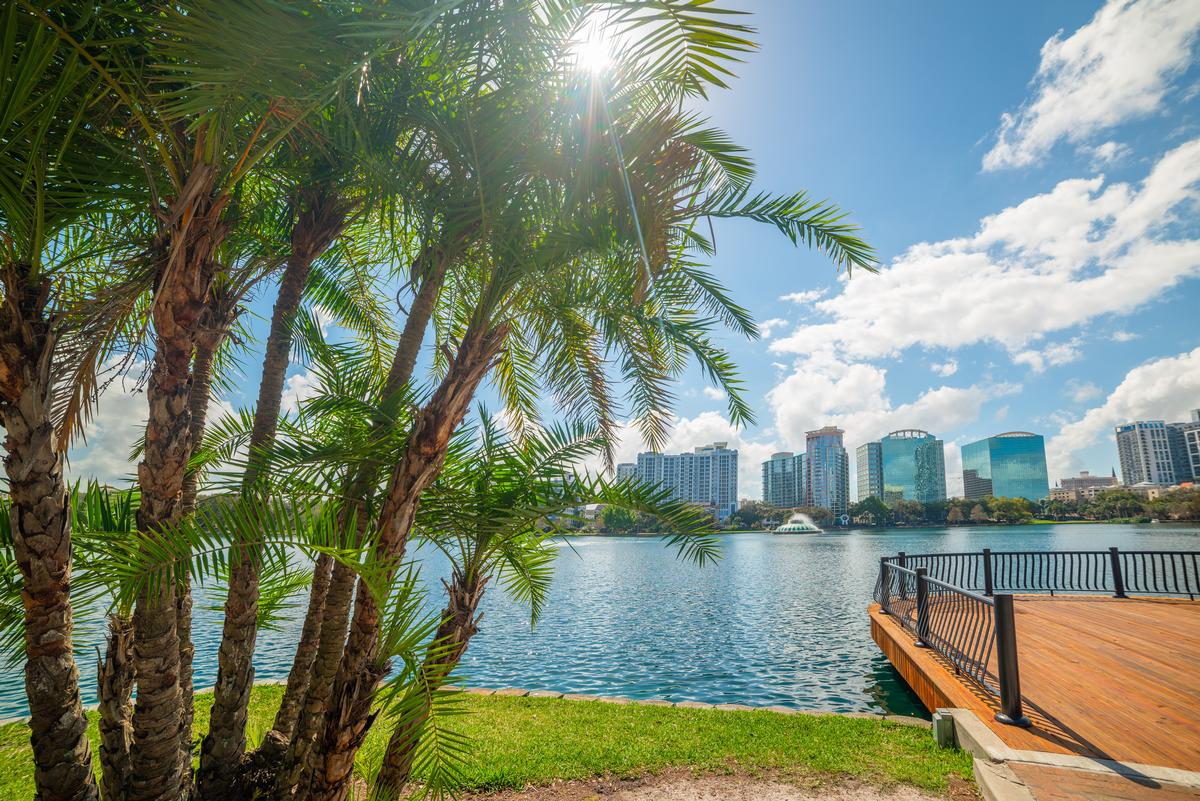
Orlando

Mount Dora
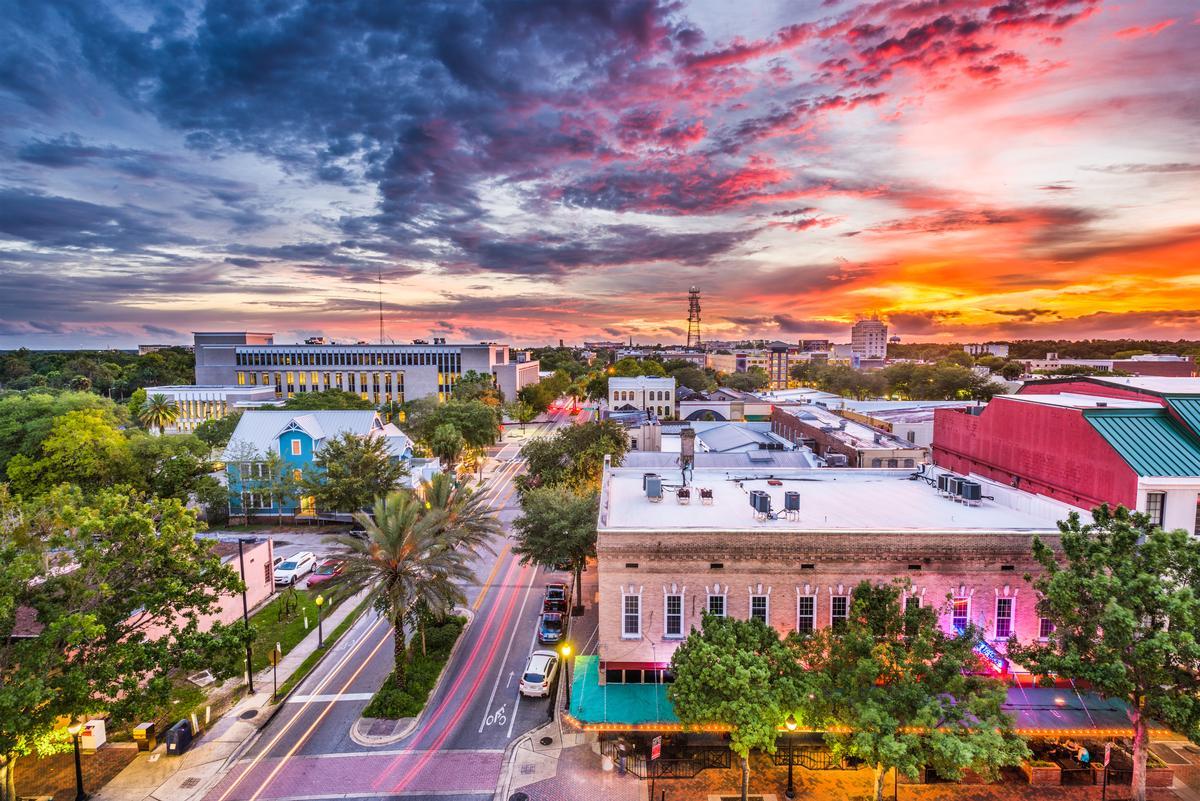
Gainesville
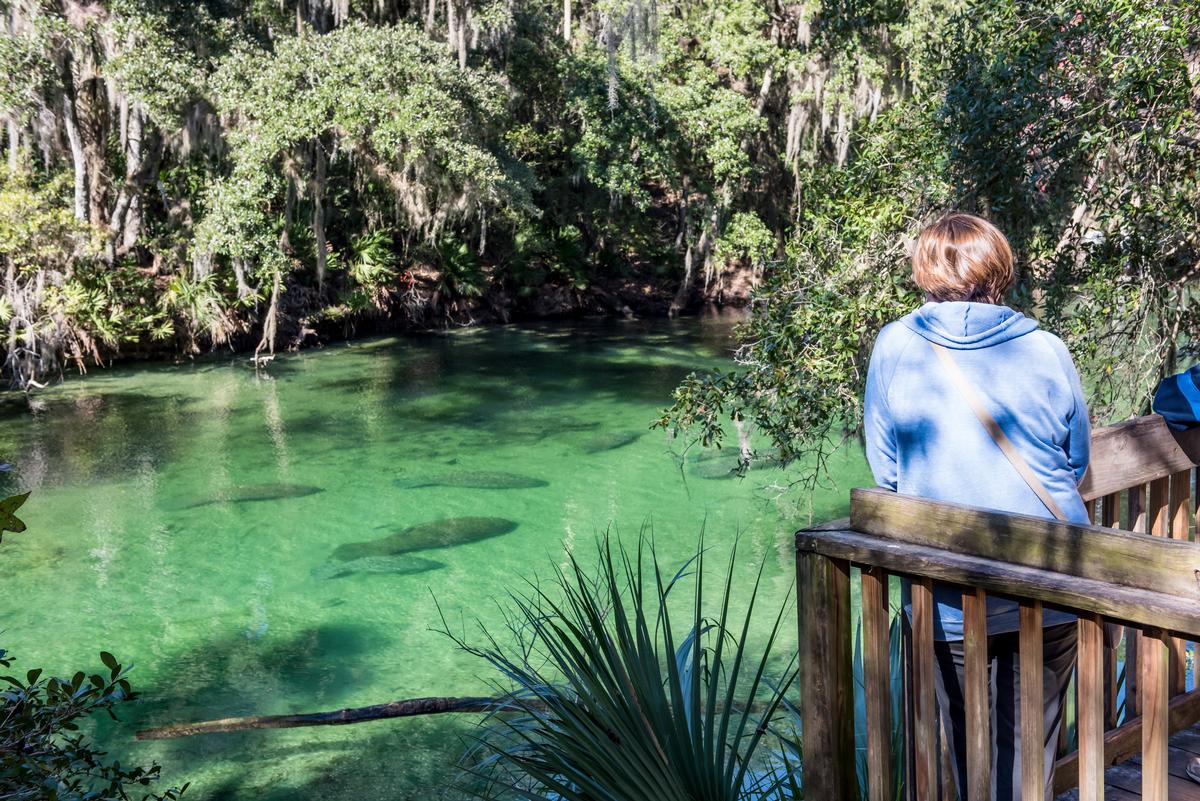
DeLand
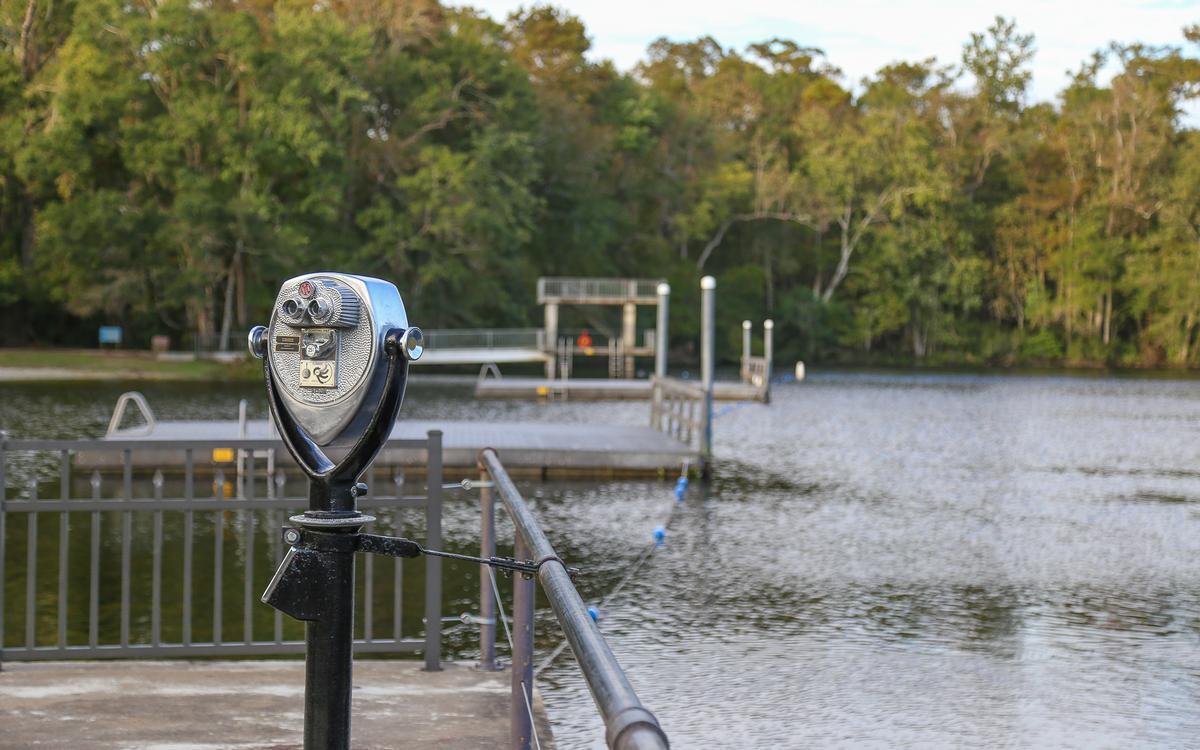
Wakulla Springs

Lake City
Booking Checklist
